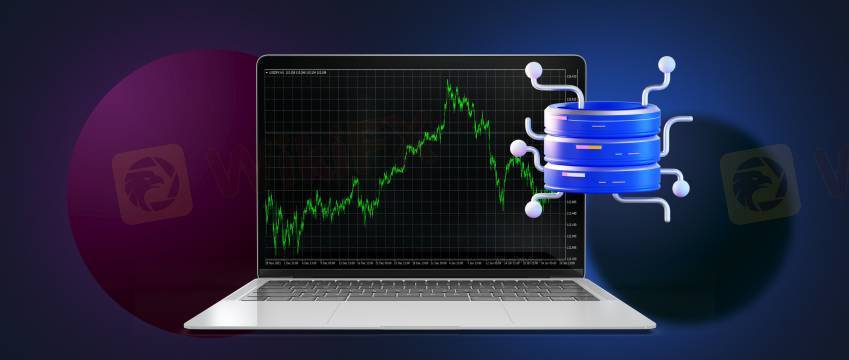
2025-01-30 03:07
IndustriyaThe future of Forex trading and emerging technolog
#firstdealofthenewyearchewbacca#
The future of Forex trading is being shaped by emerging technologies, leading to increased automation, efficiency, and accessibility. Here are some key trends and technologies driving the evolution of Forex trading:
1. Artificial Intelligence (AI) & Machine Learning
AI-powered trading bots analyze market trends, sentiment, and price movements to make data-driven decisions.
Machine learning models continuously improve trading strategies based on historical data.
2. Algorithmic & High-Frequency Trading (HFT)
Algorithms execute trades at ultra-fast speeds, capitalizing on small price movements.
HFT firms use sophisticated algorithms to process large amounts of data and execute trades in milliseconds.
3. Blockchain & Decentralized Finance (DeFi)
Blockchain enhances transparency, security, and transaction speed in Forex markets.
DeFi platforms offer decentralized Forex trading, reducing the reliance on traditional brokers.
4. Quantum Computing
Quantum computers could revolutionize market analysis by solving complex problems much faster than traditional computers.
They might lead to highly accurate predictive models for currency price movements.
5. Big Data & Predictive Analytics
Traders use big data analytics to identify patterns and make more informed decisions.
Sentiment analysis tools analyze news, social media, and economic reports to predict market trends.
6. Cloud Computing & SaaS Trading Platforms
Cloud-based trading platforms provide real-time data access, reducing latency in trade execution.
Software-as-a-Service (SaaS) solutions allow traders to access advanced tools without expensive infrastructure.
7. Internet of Things (IoT) & 5G
Faster data transmission through 5G improves execution speed and market access.
IoT devices can provide real-time economic indicators (e.g., tracking shipments for trade volume insights).
8. Central Bank Digital Currencies (CBDCs)
CBDCs could impact Forex trading by introducing new currency pairs and changing global liquidity flows.
They might reduce volatility in emerging markets.
9. Social & Copy Trading
AI-enhanced social trading platforms allow beginners to replicate expert traders’ strategies.
Community-driven insights improve decision-making and reduce entry barriers.
10. Regulation & Security Enhancements
RegTech (Regulatory Technology) helps traders comply with regulations through automation.
Cybersecurity advancements protect trading platforms from fraud and hacking.
Conclusion
Forex trading is evolving rapidly with AI, blockchain, and algorithmic trading at the forefront. The integration of emerging technologies will make the market more efficient, accessible, and data-driven. However, traders must stay informed about regulatory changes, cybersecurity risks, and technological disruptions to remain competitive.
Katulad 0
bossbaby6527
Mangangalakal
Mainit na nilalaman
Pagsusuri ng merkado
Dogecoin cheers coinbase listing as Bitcoin’s range play continues
Pagsusuri ng merkado
Grayscale commits to converting GBTC into Bitcoin ETF:
Pagsusuri ng merkado
Bitcoin's price is not the only number going up
Pagsusuri ng merkado
Theta Price Prediction:
Pagsusuri ng merkado
How to Research Stocks:
Pagsusuri ng merkado
Bitcoin (BTC), Ethereum (ETH) Forecast:
Kategorya ng forum

Plataporma

Eksibisyon

Ahente

pangangalap

EA

Industriya

Merkado

talatuntunan
The future of Forex trading and emerging technolog
 Nigeria | 2025-01-30 03:07
Nigeria | 2025-01-30 03:07#firstdealofthenewyearchewbacca#
The future of Forex trading is being shaped by emerging technologies, leading to increased automation, efficiency, and accessibility. Here are some key trends and technologies driving the evolution of Forex trading:
1. Artificial Intelligence (AI) & Machine Learning
AI-powered trading bots analyze market trends, sentiment, and price movements to make data-driven decisions.
Machine learning models continuously improve trading strategies based on historical data.
2. Algorithmic & High-Frequency Trading (HFT)
Algorithms execute trades at ultra-fast speeds, capitalizing on small price movements.
HFT firms use sophisticated algorithms to process large amounts of data and execute trades in milliseconds.
3. Blockchain & Decentralized Finance (DeFi)
Blockchain enhances transparency, security, and transaction speed in Forex markets.
DeFi platforms offer decentralized Forex trading, reducing the reliance on traditional brokers.
4. Quantum Computing
Quantum computers could revolutionize market analysis by solving complex problems much faster than traditional computers.
They might lead to highly accurate predictive models for currency price movements.
5. Big Data & Predictive Analytics
Traders use big data analytics to identify patterns and make more informed decisions.
Sentiment analysis tools analyze news, social media, and economic reports to predict market trends.
6. Cloud Computing & SaaS Trading Platforms
Cloud-based trading platforms provide real-time data access, reducing latency in trade execution.
Software-as-a-Service (SaaS) solutions allow traders to access advanced tools without expensive infrastructure.
7. Internet of Things (IoT) & 5G
Faster data transmission through 5G improves execution speed and market access.
IoT devices can provide real-time economic indicators (e.g., tracking shipments for trade volume insights).
8. Central Bank Digital Currencies (CBDCs)
CBDCs could impact Forex trading by introducing new currency pairs and changing global liquidity flows.
They might reduce volatility in emerging markets.
9. Social & Copy Trading
AI-enhanced social trading platforms allow beginners to replicate expert traders’ strategies.
Community-driven insights improve decision-making and reduce entry barriers.
10. Regulation & Security Enhancements
RegTech (Regulatory Technology) helps traders comply with regulations through automation.
Cybersecurity advancements protect trading platforms from fraud and hacking.
Conclusion
Forex trading is evolving rapidly with AI, blockchain, and algorithmic trading at the forefront. The integration of emerging technologies will make the market more efficient, accessible, and data-driven. However, traders must stay informed about regulatory changes, cybersecurity risks, and technological disruptions to remain competitive.
Katulad 0
Gusto kong magkomento din
Ipasa
0Mga komento

Wala pang komento. Gawin ang una.

Ipasa
Wala pang komento. Gawin ang una.